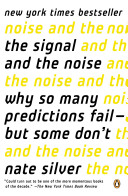The Difference Between Average and Great Chessmasters
Great players like Kasparov do not delude themselves into thinking they can calculate all these possibilities. This is what separates elite players from amateurs. In his famous study of chess players, the Dutch psychologist Adriaan de Groot found that amateur players, when presented with a chess problem, often frustrated themselves by looking for the perfect move, rendering themselves incapable of making any move at all.
Chess masters, by contrast, are looking for a good move—and certainly if at all possible the best move in a given position—but they are more forecasting how the move might favorably dispose their position than trying to enumerate every possibility. It is “pure fantasy,” the American grandmaster Reuben Fine wrote,27 to assume that human chess players have calculated every position to completion twenty or thirty moves in advance.
It is not quite as simple as saying that “the perfect is the enemy of the good.” If you want to really master a game like chess, you may need to get beyond such simple heuristics. Nevertheless, we are not capable of making perfect decisions when presented with more information than we can process in a limited amount of time. Acknowledging those imperfections may free us to make the best decisions that we can in chess and in other contexts that involve forecasting.
Notes:
The great do not overthink, but rely on intuition to guide them. They do not look for a perfect move, but an advantageous move.
Taxonomies:
/hobbies and interests/games/chess (0.668380)
/art and entertainment/movies and tv/movies (0.364125)
/business and industrial (0.193427)
Keywords:
Dutch psychologist Adriaan (0.912557 (neutral:0.000000)), American grandmaster Reuben (0.857933 (neutral:0.000000)), human chess players (0.794903 (neutral:0.000000)), Difference Between Average (0.620385 (positive:0.440054)), perfect decisions (0.617260 (neutral:0.000000)), Great Chessmasters (0.584979 (positive:0.440054)), elite players (0.564163 (positive:0.781297)), famous study (0.559665 (neutral:0.000000)), good move—and (0.548252 (positive:0.369567)), chess problem (0.546891 (negative:-0.257154)), amateur players (0.544840 (neutral:0.000000)), simple heuristics (0.543285 (neutral:0.000000)), Great players (0.540919 (positive:0.390643)), Chess masters (0.540102 (neutral:0.000000)), Fine wrote,27 (0.538406 (neutral:0.000000)), pure fantasy (0.538096 (positive:0.437014)), best decisions (0.534360 (positive:0.767016)), position (0.344338 (positive:0.369567)), imperfections (0.304939 (positive:0.767016)), Kasparov (0.295864 (positive:0.390643)), Groot (0.295305 (neutral:0.000000)), intuition (0.292450 (positive:0.597330)), forecasting (0.279182 (positive:0.767016)), possibilities (0.278857 (positive:0.390643)), amateurs (0.278567 (positive:0.781297)), contrast (0.277584 (neutral:0.000000)), contexts (0.276549 (positive:0.767016)), possibility (0.271260 (positive:0.369567)), completion (0.270105 (neutral:0.000000)), enemy (0.268209 (neutral:0.000000))
Entities:
Chess:Sport (0.843840 (neutral:0.000000)), Adriaan de Groot:Person (0.662253 (neutral:0.000000)), Reuben Fine:Person (0.555693 (neutral:0.000000)), Kasparov:Person (0.513894 (positive:0.390643))
Concepts:
Chess (0.986070): dbpedia | freebase | opencyc
Reuben Fine (0.604985): dbpedia | freebase | yago
Grandmaster (0.574084): dbpedia | freebase | yago
FIDE (0.526868): website | dbpedia | freebase
Mikhail Botvinnik (0.523430): dbpedia | freebase | yago
Adriaan de Groot (0.522187): dbpedia | freebase | yago
Alfred Binet (0.485088): dbpedia | freebase | yago
Max Euwe (0.467510): dbpedia | freebase | yago





